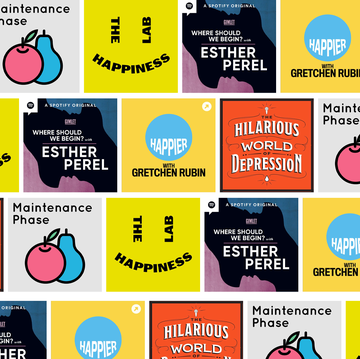9 Best Mood-Boosting Foods to Add to Your Weekly Rotation
Nutritionists share their favorite meals and snacks to eat for better mental health.

Can food really lower your risk of depression or anxiety? More and more nutrition studies suggest that including certain mood-boosting foods in your diet may be beneficial for long-term mental health.
Obviously, there’s no single food that’s the answer; it’s about cumulative and consistent efforts over time. “Many foods that have been studied for mood share similar benefits,” says Sandra Vasquez, M.S., R.D., C.S.O.W.M., a nutritionist at Cooper University Health Care. “That includes reducing inflammation, lowering oxidative stress and boosting serotonin and dopamine.”
Mood-boosting foods also deliver key nutritional components. “They’re high in essential nutrients, antioxidants and omega-3s, and they’re foods that modulate blood sugar to prevent mood swings. They also contain compounds that increase neurotransmitters such as serotonin,” says Keerthana Kesavarapu, D.O., an associate professor of medicine at Rutgers Health, Robert Wood Johnson Medical School. “The big takeaway is that a diet that combines protein, fiber and healthy fats has the best impact on mood.”
To see for yourself how some foods can support a happier mindset, consider incorporating the nine foods and beverages below into your regular rotation.
Stefani (she/her) is a registered dietitian, a NASM-certified personal trainer and the director of the Good Housekeeping Institute Nutrition Lab, where she handles all nutrition-related content, testing and evaluation. She holds a bachelor’s degree in nutritional sciences from Pennsylvania State University and a master’s degree in clinical nutrition from NYU. She is also Good Housekeeping’s on-staff fitness and exercise expert. Stefani is dedicated to providing readers with evidence-based content to encourage informed food choices and healthy living. She is an avid CrossFitter and a passionate home cook who loves spending time with her big fit Greek family.


75 Quotes About Mental Health We All Need to Hear

The Viral Mental Health Trend That's Worth Trying

Natural Remedies for Anxiety That Really Work

The Genius Mental Health Hack You Haven't Heard of
















